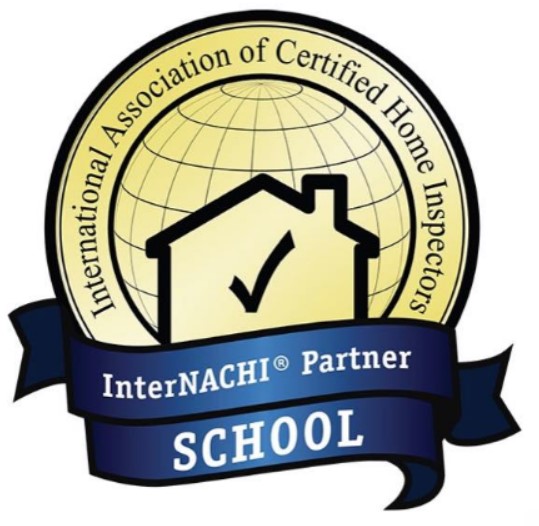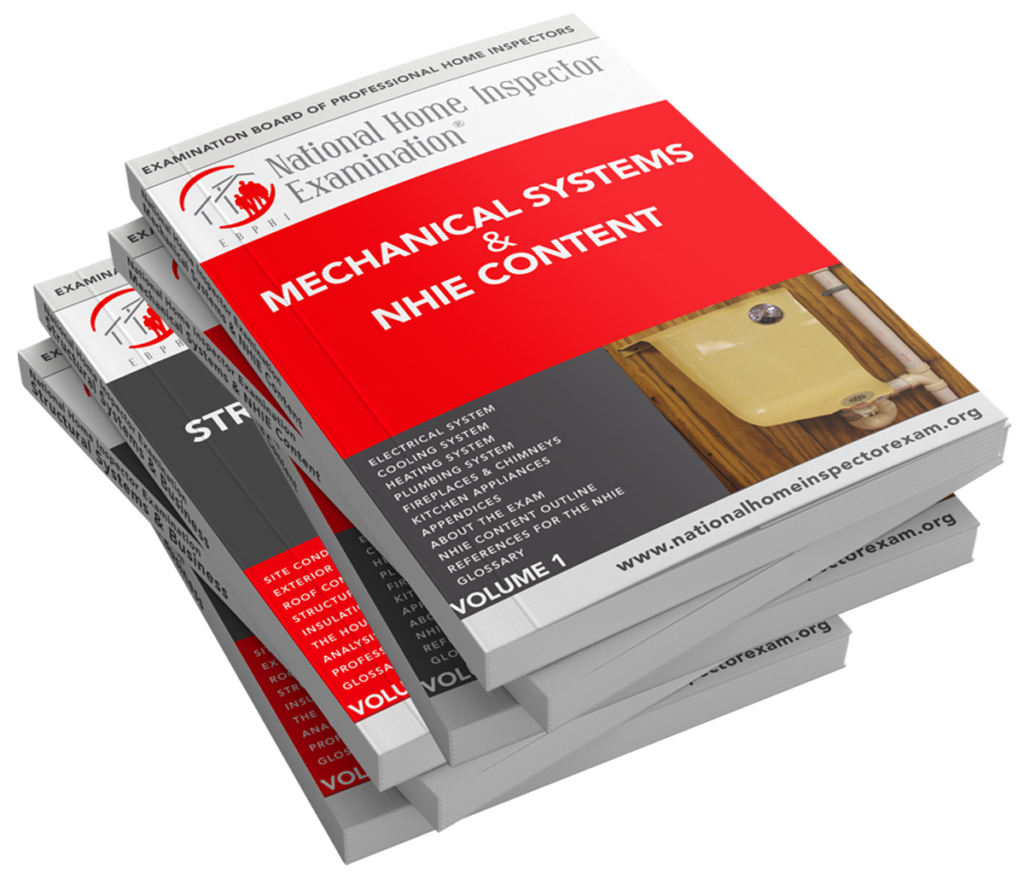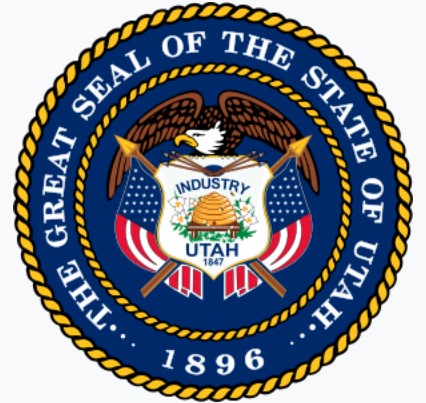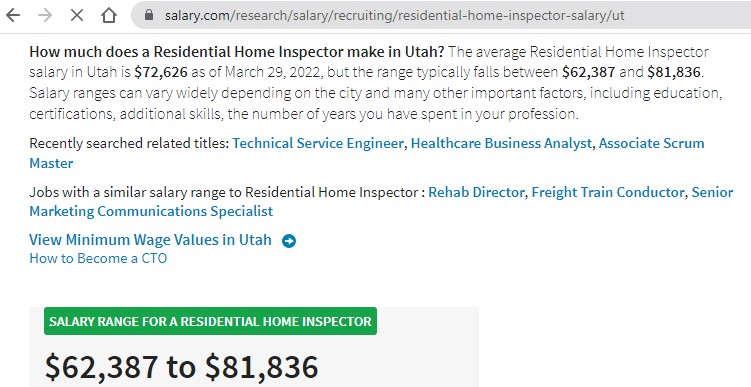At the School of Professional Home Inspection, our Fundamentals of Home Inspection program is recognized for its rigorous curriculum. Our classes follow a hybrid format, accommodating both in-person and live Zoom attendance, facilitating direct interaction between students and teachers for a higher chance of success in this rewarding career. The extensive training covers various professional practices, including Standards of Practice, Business Practices, Legal Issues, Client Communications, and more.

Our Utah Fundamentals of Home Inspection course cost $2,500. This comprehensive course meets all state requirements and delivers exceptional value. Benefit from Zoom-based classes featuring live lectures, practical techniques, and instruction by experienced Home Inspection Professionals. Enroll in this State-Certified course to be well-prepared for a career in Home Inspections. Don’t miss this opportunity to excel with us!
Is there any financing available?
Certainly! We are pleased to offer convenient payment arrangements. By making a $1250 deposit in advance, you can secure your spot in the class and pay the remaining balance over three months. Upon full payment, you will receive your certificate of completion. Should you have any questions or need assistance, please don’t hesitate to reach out. We are here to support you throughout your learning journey.
The class schedule runs from Monday to Saturday, starting at 7:30 a.m. and concluding at 4:30 p.m. with Sundays off. The final week maintains the same timing, from Monday to Saturday, marking the completion of the course.
There are fourteen Technical Subjects including Structural Components, Exteriors, Roofing, Plumbing, Electrical Systems, and nine others.
The class wraps up with special subjects including Common Building Codes, Product Quality, Safety Issues, Environmental Conditions, Hazardous Materials, and a review of Inspection Tools and Techniques.
You can complete this intensive training program in just two weeks. We will prepare you for success in this lucrative career.
What should I do next? Consider joining InterNACHI
Meanwhile, we suggest considering membership with InterNACHI. They offer a wealth of learning materials and sample tests to help you prepare for the state exam. By using our school’s discount code “SOPHI1MO,” you’ll receive a complimentary 1-month membership. To create a membership, visit nachi.org/trial and apply the code during registration.

Enhance your learning with a head start by exploring our study guide. Classes are conducted via Zoom, and the code check series books will be electronically delivered once the class begins. Preparing ahead will familiarize you with the materials, ensuring better readiness for the course.
Additionally, there is an optional textbook available from NHIE, priced at $259.00 for the print version. As a special benefit to our paying students, you can avail the E-book version at just $125.
Be sure to check out our recommended tools in our Amazon store:
The minimum tools you will need include:
- high-quality respirators
- good flashlight
- camera
- moisture meter
- outlet tester
- minimal hand tools (screwdrivers, nut drivers, etc.)
- ladder
- safety gear, (eye protection, gloves, shin guards, jumpsuit)
- computer/software
- vehicle (think gas mileage)
In one super busy month when I was inspecting with my original gas-hog 350cid van, I spent $750 in fuel alone. When I doubled my gas mileage, it paid for a newer efficient van. Consider an efficient vehicle.
Other nice to have tools include:
- thermal camera (I like the Flir E4)
- drone (DJI makes great drones)
- electrical multimeter (you can’t go wrong with an entry-level Fluke meter)
I would consider buying these later, but I love all of these tools.
While many inspectors are self-employed, there are also possibilities to collaborate with multi-inspector firms and franchises. If considering an offer from another company, it is crucial to thoroughly review the terms. We highly advise seeking legal counsel to assess and ensure the best possible outcome.
HUD
U.S. Department of Housing and Urban Development offers home inspectors opportunities to assess properties under housing programs like Section 8. They also collaborate with Certified 203(k) Consultants for property rehabilitation projects. Partnering with HUD allows inspectors to contribute to community improvement and housing accessibility.
Sewer Scopes
This service is often an easy sell to clients, as you can emphasize the importance of inspecting something they can’t see but is potentially the most expensive aspect of their property. Sewer scopes provide valuable information about the condition of the sewer line, helping homeowners and buyers make informed decisions about maintenance and potential issues.
Energy Audit
An energy audit is an inspection survey and an analysis of energy flows for energy conservation in a building. It may include a process or system to reduce the amount of energy input into the system without negatively affecting the output.
A home energy audit helps individual homeowners find out their residential consumption and energy flow. An audit is useful to determine areas of your home where there is energy loss and by identifying where power usage may be curbed to earn savings.
We are approved by the Veterans Affairs Administration as an eligible provider for Veteran education benefits. (GI bill)
Have more questions? Call us, we love to talk about home inspection careers.




